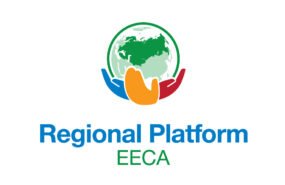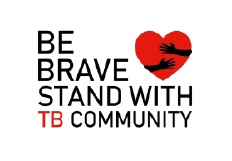Joint letter from Civil Society and Key Populations communities from Central, Eastern European and Central Asia region to support Global AIDS Strategy zero draft
- 19.02.2021 12:38
- Post Views: 533
Originally published on UNAIDS Programme Coordinating Board website
Sent 12th of February, 2021
To: To UNAIDS Strategy Team and UNAIDS PCB members
CC: DXD Programme UNAIDS, DXD MER UNAIDS
We are writing to you today as representatives of regional, national and local civil society organizations, key population communities and networks to welcome the zero draft of the Global AIDS Strategy and to express our support to the efforts of UNAIDS Strategy Team, UNAIDS Secretariat and Co-Sponsors, PCB member states, and global experts community in developing the draft Strategy.
The CEECA civil society and key populations communities support the ongoing efforts in relation to the Strategy development and its framing using the lens of inequalities. While there are noticeable gaps in the result areas, which we will push for inclusion, we should not backtrack on already agreed language enshrined in the 2016-2021 UNAIDS Strategy, including naming key populations and addressing key contextual challenges in effective HIV response, which specifically affect the CEECA region. We want to express a need to emphasize the centrality of communities and key populations in the global response to HIV in the Global AIDS Strategy.
We stand together and counter any moves to further delay this process or dilute the current zero draft. Particularly, we stress the following:
- We commend the transparent and consultative process leading to an ambitious and comprehensive zero draft of the Global AIDS Strategy. We actively participate in the process by providing content and recommendations based on best practice and lessons learned from the implementation of the previous UNAIDS Strategy. The process is and must stay transparent and inclusive, and voices of communities and key populations must be heard and listened to.
- We welcome the fact that the zero draft is grounded in principles of comprehensive, data- driven and evidence-based approaches to the HIV response and inclusive of Universal Health Coverage values. These principles and values cannot be diluted.
- We welcome the draft strategy central focus on human rights and gender equality. They are crucial to ending AIDS in our region where the epidemic is still growing, especially among key populations who continue to experience barriers in access to health and social services. We recommend not to merge human rights and gender equality in result area 5 and strongly support the separation of the pillars dedicated to human rights and gender.
- We strongly support joint actions of Co-Sponsors in addressing human rights and gender- based violence as a key obstacle to ending AIDS. The Global AIDS Strategy needs to be a joint Strategy, not limited only to sole objectives of the UNAIDS programme.
- We fully support the holistic and comprehensive approach to address all key social, legal and epidemiological factors in a country context. As we know from our everyday work in HIV prevention, treatment and care, effective help to people needs to go beyond narrow biomedical interventions and must include legal help, social adaptation and protection, and community support. Sexual and reproductive health and rights, gender-based components and harm reduction services are essential part of the comprehensive HIV response.
- Provision of cost-effective, comprehensive, evidence-based, needs and data driven HIV interventions for people using drugs, gay men and other men who have sex with men , trans* people, sex workers, women, adolescents and youth, migrants and inmates are core to ending AIDS in countries with epidemic concentrated in these populations. Providing focused health and social support for those in grater needs could not be interpreted as discrimination or cultural intolerance.
- For us as representatives of the CEECA region it is important to support equality, human rights and gender equity as key values for our societies. Human rights of all citizens must be protected even if it means challenging some of the traditional social practices or religious and societal prejudices.
- Criminalization, discrimination and stigmatisation of key populations in the CEECA region are the main drivers of the HIV epidemic in our countries. Non-repressive drug policies and decriminalization of drug possession and personal use will remove key barriers for people using drugs in access to health, medical and social support, which will ensure effective action to end AIDS in countries with high HIV prevalence and incidence among people using drugs.
We believe that fully and sustainably funded and properly implemented new Global AIDS Strategy has a potential to finally end AIDS in our region. This can only happen if community and key population voices are heard and listened to, communities , human rights, prevention and gender equality are at the front and centre of the Strategy and evidence-based HIV intervention are recognised, accepted and sustainably funded and implemented across the EECA region.
Signatories:
- A.O. PULS Comunitar, Moldova
- AFEW International
- AIDS Action Europe
- Alliance for Public Health
- Charitable organization “All-Ukrainian League “Legalife”
- Civil Organization “Volunteer”, Tajikistan
- Civil Organization “Era of Mercy”, Ukraine
- Civil union “Centre for development and social support to the population “My Home”,Kazakhstan
- CO 100 PERCENT LIFE
- ECOM – Eurasian Coalition on Health, Rights, Gender and Sexual Diversity
- Eurasian harm reduction association (EHRA)
- Eurasian Key Populations Health Network (EKHN)
- Eurasian Women’s network on AIDS (EWNA)
- Harm Reduction NGOs Coalition “Outreach”
- HPLGBT – Civil Organization
- Regional Expert Group on Migration and Health
- Rights Reporter Foundation
- Svitanok Club, Ukraine
- The European AIDS Treatment Group
- Union for HIV prevention and Harm Reduction, Moldova
Related News
Services for migrants and refugees from Ukraine – HIV/TB care with a focus on key populations
Due to the increasing flows of refugees from Ukraine because of Russia’s invasion of Ukraine, the EECA Regional Platform created a spreadsheet to fill contacts details of face-to-face and online services for refugees and migrants (with a focus on HIV/TB care and key population groups).
Regional Platform – EECA
This web-resource is a part of new regional communication and coordination project “Regional Civil Society and Community Support, Coordination and Communication Platform - EECA”, implemented by Eurasian Harm Reduction Association (EHRA).
Tags
See also
-
EECA’s Regional Platform monthly Newsletter #21, February 2026 26.02.2026 11:56
-
EECA’s Regional Platform monthly Newsletter #20, January 2026 27.01.2026 12:58
-
Global Fund Eligibility List 2026 27.01.2026 11:19







